“Understanding and Preventing Rubella (German Measles) in Kids” is an informative article that falls within the realm of children’s health. This comprehensive piece covers a wide range of health topics related to children, such as anxiety, exercise, bedwetting, infectious diseases, dental care, mental health, and more. With a diverse array of subject matter, readers can explore areas such as rubella and its prevention, alongside a symptom checker and a health service finder tool. By delving into these crucial areas, the article aims to equip caregivers and parents with vital knowledge and resources to safeguard the well-being of their children.
Understanding Rubella (German Measles)
Rubella, also known as German measles, is a viral infection that primarily affects children. It is caused by the rubella virus and is characterized by a red rash that spreads across the body. Understanding the causes, symptoms, and complications of rubella is crucial for effective prevention and management.
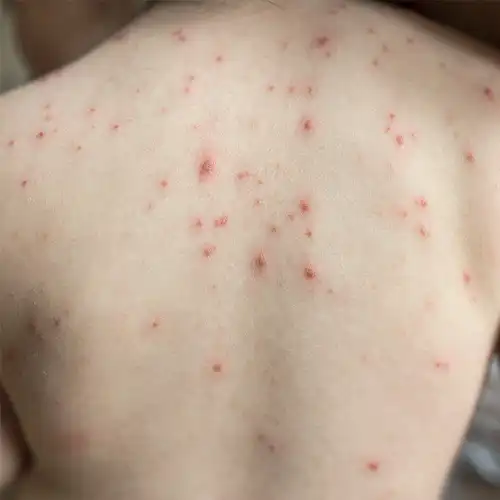
What is Rubella?
Rubella is a contagious viral infection that is typically milder than measles. It is characterized by a rash and can cause various symptoms such as fever, swollen glands, and joint pain. Rubella can be transmitted through respiratory droplets, making it highly contagious.
Causes of Rubella
Rubella is caused by the rubella virus, which is spread through respiratory secretions. It can be transmitted from person to person through coughing or sneezing. A pregnant woman infected with rubella can also pass the virus to her unborn baby, potentially causing severe birth defects.
Symptoms of Rubella
The symptoms of rubella usually appear two to three weeks after exposure to the virus. Common symptoms include a low-grade fever, headache, sore throat, and a red rash that starts on the face and spreads to the rest of the body. Some individuals may also experience swollen lymph nodes and joint pain.
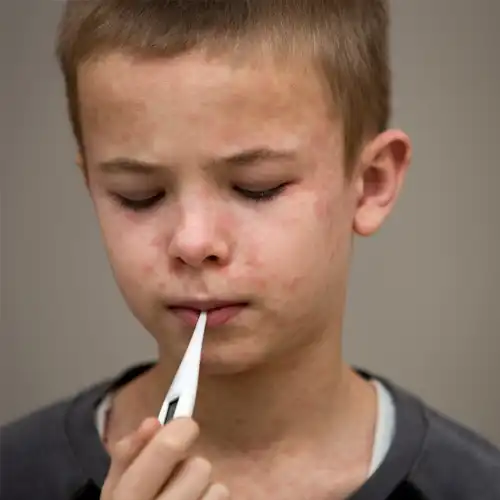
Diagnosing Rubella
Diagnosing rubella can be done through a combination of medical history, physical examination, and laboratory tests. A healthcare provider will assess the patient’s symptoms, conduct a thorough physical examination, and order blood tests to detect the presence of rubella antibodies.
Complications of Rubella
While rubella is generally a mild infection, it can lead to complications, especially in certain populations. Pregnant women infected with rubella are at risk of giving birth to babies with congenital rubella syndrome, which can cause severe birth defects and developmental disabilities. Other complications of rubella include arthritis, encephalitis (inflammation of the brain), and thrombocytopenia (low platelet count).
Preventing Rubella
Vaccination for Rubella
Vaccination is the most effective way to prevent rubella. The rubella vaccine, typically administered as part of the measles, mumps, and rubella (MMR) vaccine, provides long-lasting immunity against the virus.
Importance of Rubella Vaccination
Rubella vaccination is crucial for preventing the spread of the virus and protecting vulnerable populations, such as pregnant women and individuals with compromised immune systems. By vaccinating against rubella, we can significantly reduce the incidence of congenital rubella syndrome and its associated complications.
Vaccine Schedule for Rubella
The rubella vaccine is usually given as part of the routine childhood immunization schedule. It is typically administered in two doses, the first dose around 12 to 15 months of age and the second dose between 4 and 6 years of age. Following the recommended vaccine schedule is essential to ensure adequate protection against rubella.
Herd Immunity and Rubella
Herd immunity occurs when a high percentage of the population is immunized against a specific disease, reducing the likelihood of its spread. Achieving herd immunity for rubella is vital to protect individuals who cannot receive the vaccine, such as infants and individuals with medical contraindications.
Precautions for Pregnant Women
Rubella can have severe consequences for unborn babies if a pregnant woman contracts the virus. Pregnant women should ensure they are immune to rubella before becoming pregnant. If a pregnant woman has not been vaccinated or is unsure of her immunity status, she should avoid close contact with individuals who have rubella.
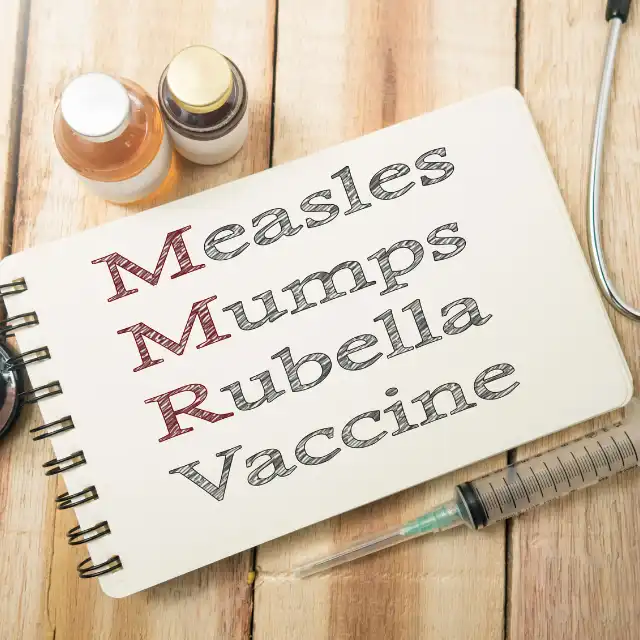
Understanding German Measles in Kids
Difference between Measles and Rubella
While both measles and rubella are viral infections that cause a rash, they are caused by different viruses. Measles is caused by the measles virus, whereas rubella is caused by the rubella virus. Additionally, the symptoms and complications of measles and rubella differ.
How Rubella Spreads
Rubella spreads through respiratory droplets when an infected person coughs or sneezes. It can also spread through close contact with an infected individual. The virus can remain in the air and on surfaces for a short period, increasing the risk of transmission.
Incubation Period of Rubella
The incubation period for rubella is typically between 14 and 21 days. During this time, an infected individual may not exhibit any symptoms but can still transmit the virus to others. It is important to note that individuals with rubella are most contagious a week before and after the onset of the rash.
At Risk Groups for Rubella
While rubella can affect individuals of all ages, certain groups are at higher risk. These include unvaccinated individuals, pregnant women, infants too young to be vaccinated, and individuals with compromised immune systems. It is crucial to protect these populations through vaccination and other preventive measures.
Rubella in Babies and Infants
Rubella can be particularly dangerous for babies and infants. If a pregnant woman contracts rubella during the early stages of pregnancy, the virus can cause severe birth defects in her baby. It is essential to protect babies and infants by ensuring they receive the recommended vaccinations on time and by promoting herd immunity.
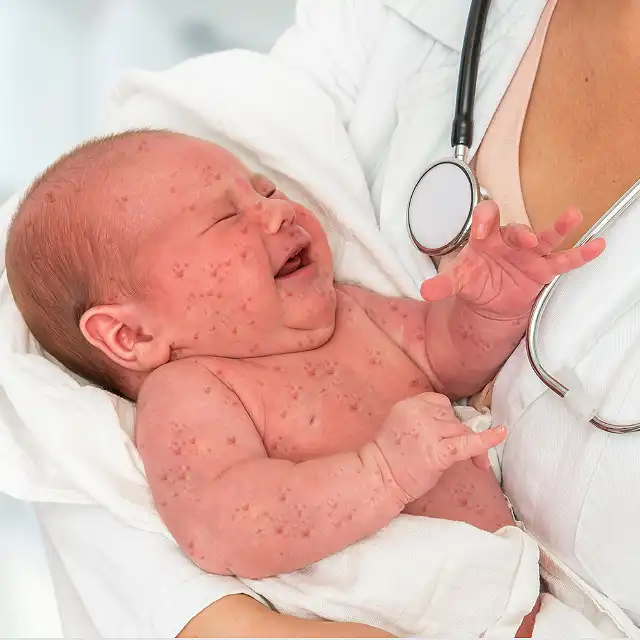
Symptoms and Complications
Common Symptoms of Rubella
The most common symptoms of rubella include a low-grade fever, a rash that starts on the face and spreads to the body, swollen lymph nodes, and joint pain. These symptoms are usually mild and can resemble those of other viral infections, making accurate diagnosis important.
Uncommon Symptoms of Rubella
While less common, rubella can also cause other symptoms such as headache, sore throat, runny nose, and conjunctivitis (pink eye). These symptoms are usually mild and may be mistaken for common cold symptoms.
Potential Complications of Rubella
While rubella is generally a mild infection, it can lead to complications, especially in vulnerable populations. Complications may include arthritis, encephalitis, and thrombocytopenia. The most significant concern is congenital rubella syndrome, which can cause serious birth defects and developmental disabilities in babies born to mothers infected with rubella during pregnancy.
Birth Defects Associated with Rubella
Congenital rubella syndrome can cause a range of birth defects, including hearing loss, heart defects, vision problems, intellectual disabilities, and developmental delay. These birth defects can have lifelong implications for affected individuals, emphasizing the importance of rubella prevention, especially in pregnant women.
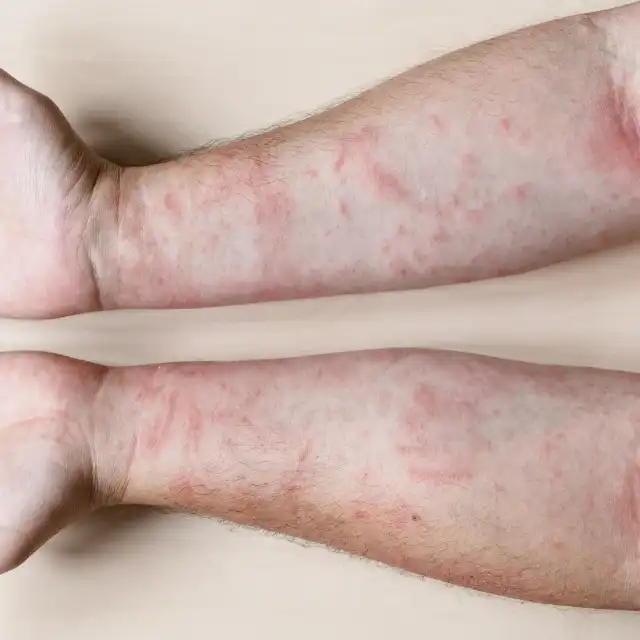
Diagnosing and Testing
Medical History and Physical Examination
To diagnose rubella, a healthcare provider will assess the patient’s medical history, including any known exposure to the virus. They will also conduct a physical examination to look for characteristic symptoms such as the rash and swollen lymph nodes.
Laboratory Tests for Rubella
Laboratory tests are often used to confirm a rubella diagnosis. A blood sample may be taken to check for the presence of rubella antibodies, including IgM and IgG antibodies.
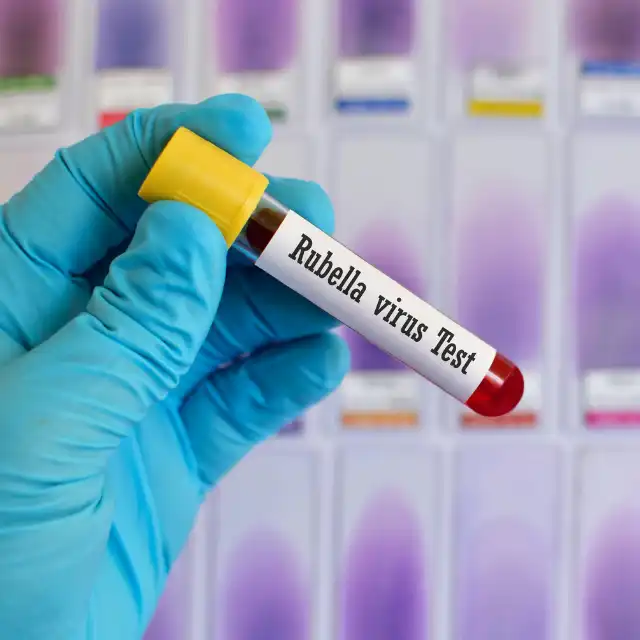
Rubella IgM and IgG Tests
The rubella IgM test detects the presence of IgM antibodies, which typically appear during the acute phase of the infection. IgG antibodies, on the other hand, indicate past infection or immunity to rubella. Combined testing of IgM and IgG antibodies can provide valuable information for diagnosis and monitoring.
Antenatal Screening for Rubella
Antenatal screening for rubella is recommended for all pregnant women to assess their immune status. This involves a blood test to determine if the woman is immune to rubella or if she needs to be vaccinated to prevent potential infection during pregnancy.
Vaccination for Rubella in Kids
Importance of Rubella Vaccination in Children
Rubella vaccination in children is crucial for their protection and the prevention of rubella transmission. Vaccination ensures that children develop immunity to the rubella virus, reducing the risk of infection and potential complications.
Recommended Vaccine Schedule
The rubella vaccine is typically given as part of the MMR vaccine, which also protects against measles and mumps. The American Academy of Pediatrics recommends administering the first dose of the MMR vaccine between 12 to 15 months of age, followed by the second dose between 4 to 6 years of age.
Vaccine Effectiveness and Side Effects
The rubella vaccine has been shown to be highly effective in preventing rubella and its complications. Side effects are generally mild and temporary, including low-grade fever, rash, and soreness at the injection site. Serious side effects are rare but can occur.
Rubella Vaccination and Herd Immunity
Rubella vaccination not only protects individuals who receive the vaccine but also contributes to herd immunity. By vaccinating a high percentage of the population, we can limit the spread of rubella, protecting vulnerable populations and reducing the overall burden of the disease.
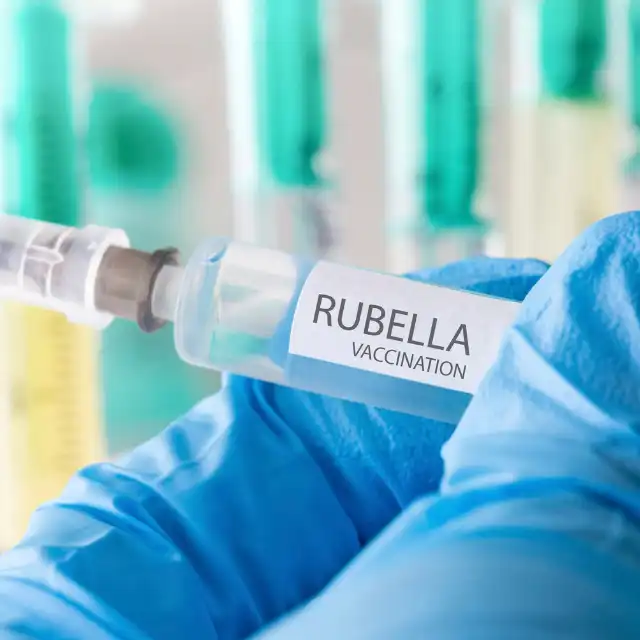
Preventing Rubella in Kids
General Prevention Measures
In addition to vaccination, several general prevention measures can help reduce the risk of rubella transmission. These include practicing good hand hygiene, covering the mouth and nose when coughing or sneezing, avoiding close contact with sick individuals, and staying home when experiencing symptoms of illness.
Vaccination Recommendations
Vaccination is the primary means of preventing rubella. Following the recommended vaccine schedule and ensuring children receive all recommended immunizations is crucial for their protection and the prevention of rubella outbreaks.
Educating Children about Rubella
Educating children about rubella and the importance of vaccinations can help them understand the disease and the need for preventive measures. Teaching them about hand hygiene, respiratory etiquette, and the benefits of vaccines can empower them to protect themselves and others.
Precautions for Pregnant Women
Pregnant women should take extra precautions to prevent rubella infection. It is important for pregnant women to ensure they are immune to rubella before becoming pregnant. If they are unsure of their immune status or have not been vaccinated, they should avoid close contact with individuals who have rubella.
Isolation and Quarantine Measures
Isolation and quarantine measures may be necessary in certain cases to prevent the spread of rubella. Infected individuals should stay home from school or work until they are no longer contagious, and healthcare providers may recommend isolating individuals with rubella to minimize transmission.

Managing Rubella in Kids
Treating Rubella Symptoms
There is no specific antiviral treatment for rubella, and most cases resolve on their own within a week or two. Treatment focuses on managing symptoms and providing supportive care, such as rest, fluids, and over-the-counter pain relievers for fever and discomfort.
Home Care for Rubella in Kids
Children with rubella can recover at home with proper care and monitoring. Encouraging plenty of rest, fluids, and a balanced diet can support their recovery. Extra attention should be given to hygiene practices to minimize the risk of secondary infections.
When to Seek Medical Care
Most cases of rubella do not require medical intervention, and the infection resolves on its own. However, parents should seek medical care if their child develops severe symptoms, such as high fever, persistent or severe joint pain, or signs of complications like encephalitis. It is important to follow the guidance of healthcare professionals.
Rubella Complications Treatment
Treatment for rubella complications depends on the specific complication. Healthcare providers will assess the severity of the complication and may recommend additional medical interventions, such as anti-inflammatory medications for arthritis or antiviral medications for severe cases of encephalitis.
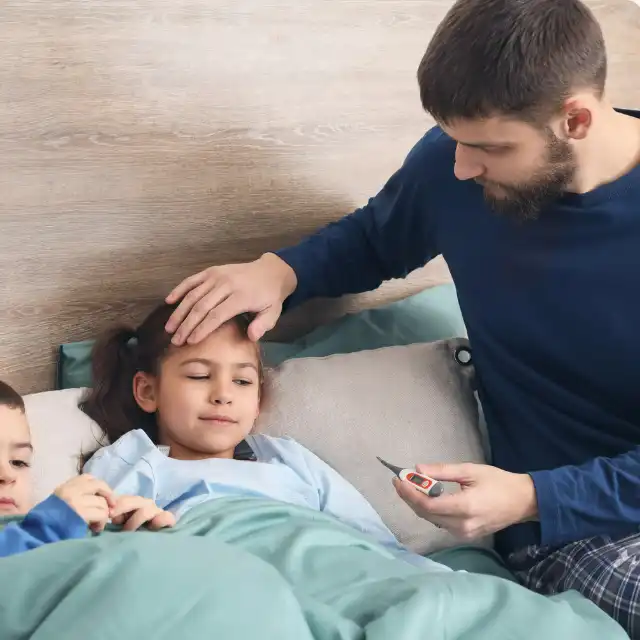
Educating Kids about Rubella
Age-Appropriate Information
When educating kids about rubella, it is essential to provide age-appropriate information. Younger children may benefit from simple explanations about germs and how illnesses spread, while older children can learn more about the specifics of rubella and its prevention.
Teaching Hand Hygiene Practices
Hand hygiene is a crucial aspect of preventing the spread of rubella and other infectious diseases. Teaching children proper handwashing techniques, such as using soap and water for at least 20 seconds, can instill lifelong hygiene habits.
Importance of Vaccinations
Educating children about the importance of vaccinations, including the rubella vaccine, helps them understand how vaccines protect them and prevent the spread of diseases. Teaching them about the science behind vaccines and dispelling any myths or misconceptions can promote vaccine acceptance.
Reducing Spread of Rubella
Children can play an active role in reducing the spread of rubella by practicing good respiratory etiquette, covering their mouths and noses when coughing or sneezing, and avoiding close contact with individuals who are sick. By understanding how rubella spreads, they can take preventive measures.
Clearing Myths and Misconceptions
Children may encounter myths and misconceptions about rubella and vaccines. Providing accurate information and addressing common misconceptions can help clear up misunderstandings and ensure that children have the correct knowledge about rubella and its prevention.

Finding Healthcare Services
Symptom Checker for Rubella
A symptom checker can help parents assess their child’s symptoms and determine whether they may be related to rubella or another condition. Online symptom checkers can provide general guidance, but it is important to consult a healthcare professional for an accurate diagnosis.
Finding Local Healthcare Providers
Finding local healthcare providers who specialize in pediatrics can ensure that children receive appropriate care. Parents can use online directories or ask for recommendations from friends, family, or their primary care provider.
Accessing Rubella Vaccination
Accessing rubella vaccination is crucial for protecting children against the virus. Parents can consult their child’s pediatrician or local public health departments to ensure they are up-to-date on their child’s immunizations or inquire about catch-up vaccination schedules if necessary.
Emergency Contacts and Hotlines
Parents should be familiar with emergency contacts and hotlines in their area. In case of a medical emergency related to rubella or any other health concern, parents can quickly seek appropriate medical assistance and guidance from these resources.
Seeking Medical Advice Online
While online resources can provide general information about rubella, it is important to seek medical advice from a qualified healthcare professional for accurate diagnosis and treatment recommendations. Online resources should never replace the expertise and personalized care of a healthcare provider.
In conclusion, understanding rubella is crucial for effective prevention and management. Vaccination, along with general preventive measures, plays a significant role in preventing the spread of rubella and protecting vulnerable populations. Educating children about rubella, its symptoms, and the importance of vaccinations empowers them to take control of their health and contribute to reducing the overall burden of the disease. By following recommended guidelines and seeking appropriate healthcare services, we can work together to prevent and manage rubella effectively.